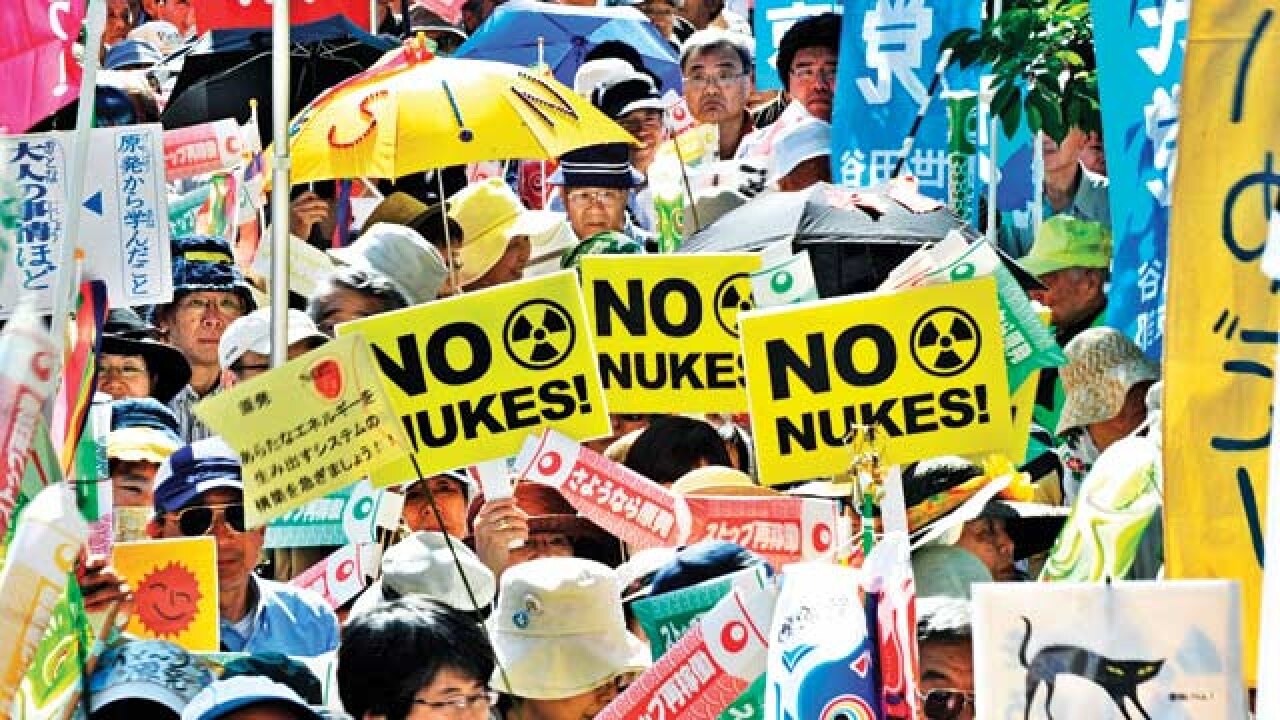
In a few days from now, the United Nations General Assembly (UNGA) will start negotiations on a treaty prohibiting nuclear weapons. If adopted, it would outlaw the use, possession, development, testing, deployment, and transfer of these weapons of mass destruction. It will be “a legally binding instrument to prohibit nuclear weapons, leading towards their total elimination”. The negotiations will take place at the UN headquarters in New York from March 27 to 31 and from June 15 to July 7, with the participation of governments, international organisations and civil society representatives. This could be a historic opportunity for total elimination of nuclear weapons and to save the world from catastrophic destruction.
After much lobbying, an Open Ended Working Group (OEWG) was established by the UNGA in 2015 to iron out “legal provisions and norms that will need to be concluded to attain and maintain a world without nuclear weapons”. The group recommended the UNGA to convene a conference in 2017, open to all states, with civil society participation, to negotiate a legally binding instrument to ban nuclear weapons. This resolution, L 41, was proposed by Austria, Brazil, Ireland, Mexico, South Africa and had 57 co-sponsors and was adopted on October 27, 2016. A full General Assembly vote on December 24 was passed by 113 votes in favour, 35 votes against, and 13 abstentions. India, China and Pakistan were among those who abstained. This is a very important event because it happened despite tremendous pressure from the US, UK and France.
It is strange that the passage of resolution L-41 and the deliberations at the UN have not drawn the international media attention. Instead, a section of the media is promoting militarism and wars in the name of controlling terrorism. It is being propagated that the resolution is pointless without the support of the P-5 (USA, Russia, UK, France and China). Nevertheless, overwhelming support to the resolution has put the nuclear weapons countries on the backfoot.
Today, several countries are embroiled in conflicts with the direct or indirect involvement of nuclear states. After the humanitarian disaster at Hiroshima and Nagasaki, popular sentiment is against nuclear weapons. Peace movements have struggled hard to urge the governments to abolish these weapons. President Donald Trump’s statements are setting the stage for a new nuclear race. The tensions and constant rhetoric between India and Pakistan are another case in point. Former army chief of Pakistan Raheel Sharif had warned India of serious consequences. Pat came Indian defence minister Manohar Parrikar’s statement that India should reserve the right to use nuclear weapons in a responsible way. There can never be a responsible use of the nuclear weapons. Former UN Secretary General Ban Ki-moon had said: “There are no right hands for the wrong weapons”. Both India and Pakistan rank very low in the Human Development Index , but are wasting precious resources in the nuclear arms race.
The non-aligned movement under Jawaharlal Nehru’s leadership was very vocal on complete nuclear disarmament. Another Prime Minster, Rajiv Gandhi made proposals for the abolition of nuclear weapons, popularly known as the Rajiv Gandhi Action Plan. With India’s tradition of promoting peace, from Buddha to Mahatma Gandhi, global civil society expects much more from India. The global anti-nuclear movements have worked hard and organised international meets in Oslo, Mexico, and Vienna. Physicians have been particularly active in this movement under the banner of International Physicians for the Prevention of Nuclear War (IPPNW) – the recipient of the 1985 Nobel Peace Prize. Such efforts have helped mobilise non-nuclear states to vote in favor of the L-41 resolution despite immense pressures. Chinese President Xi Jinping’s call at the World Economic Forum in Davos for complete nuclear disarmament is very encouraging. India, China and Pakistan must vote in favour of disarmament in the upcoming negotiations and India should take the lead in our neighbourhood.
There are some historical moments and right decisions which can change destiny. On September 26, 1983, three weeks after the Soviet military shot down Korean Airlines Flight 007, Lieutenant-Colonel Stanislav Petrov was the duty officer at the Oko nuclear early-warning system command centre when the system reported that the US had launched a missile. Petrov judged it to be a false alarm. His decision prevented an erroneous retaliatory nuclear attack on the US and its NATO allies and averted a nuclear war. It was later confirmed that the Soviet satellite warning system had indeed malfunctioned.
The author is a member of the International Physicians for the Prevention of Nuclear War.